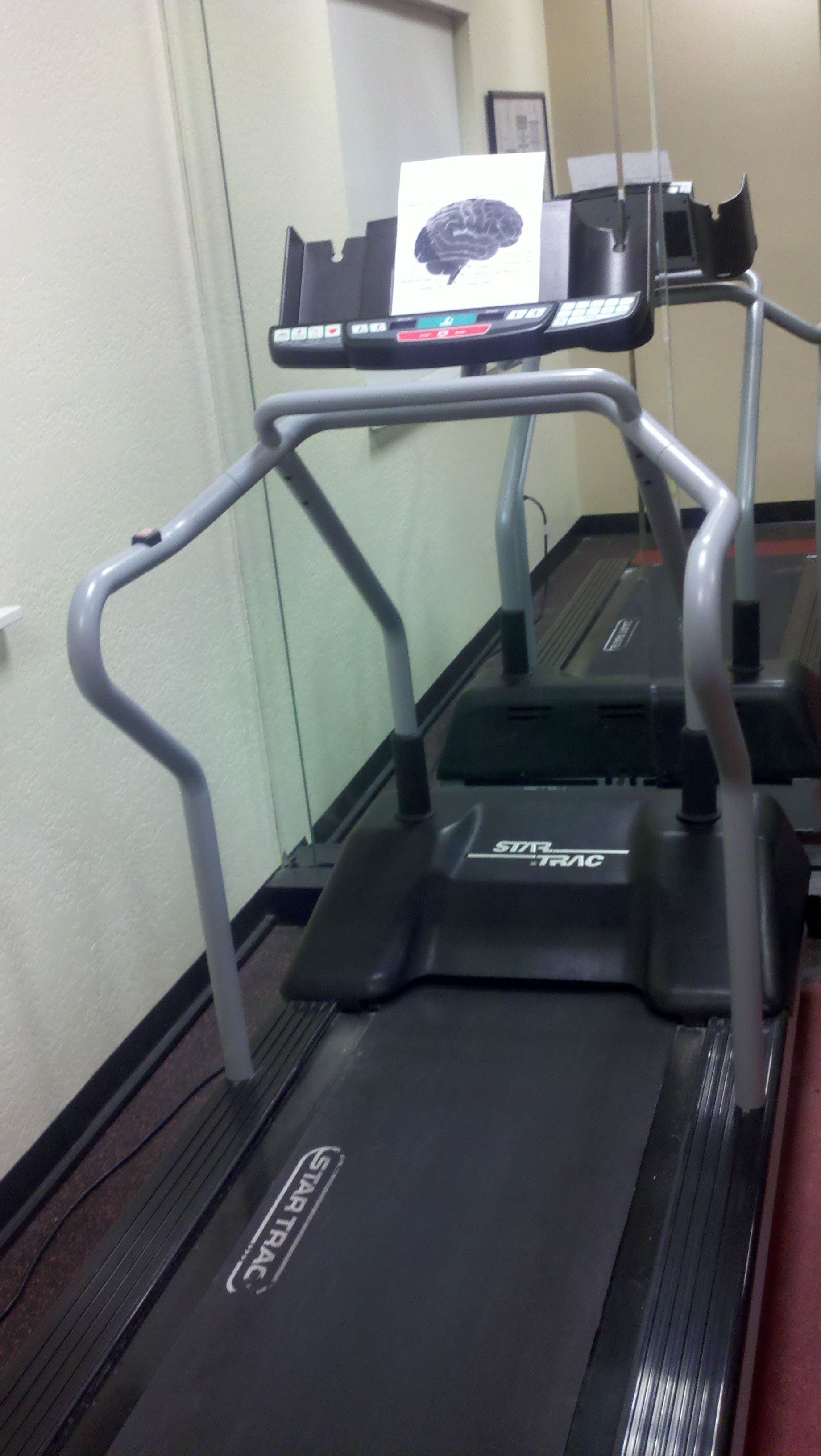Finally, there’s a breakthrough method to delay aging, increase brain volume, and improve memory. It’s called… “exercise.”
Wait, exercise!? Oh yeah. A recent study from the University of Pittsburgh shows that aerobic exercise training increases the size of the anterior hippocampus, leading to improvements in spatial memory
Walk It Out – Analysis
 As healthcare costs skyrocket and the proportion of the population over 65 grows, researchers are looking for low-cost means to treat and prevent brain tissue loss associated with aging. The 120-person(ages 55-80) yearlong study provides evidence that aerobic exercise training can bolster hippocampus volume in late adulthood, thus improving spatial memory
As healthcare costs skyrocket and the proportion of the population over 65 grows, researchers are looking for low-cost means to treat and prevent brain tissue loss associated with aging. The 120-person(ages 55-80) yearlong study provides evidence that aerobic exercise training can bolster hippocampus volume in late adulthood, thus improving spatial memory
In the study, individuals participating in aerobic exercise increased hippocampus volume by 2% over the one-year period (equivalent to reversing age-related volume loss by 1-2 years), whereas the control group’s hippocampi (now there’s a fancy plural) shrank by 1.40-1.43%
Wait, so our brains typically get smaller with age? Sort of. Around late adulthood (>60 yrs old), the hippocampus begins to shrink, leading to impaired memory and an increased risk for dementia
This brings us to the caveat: the study consisted only of adults with an average age of 67, so throwing away Power Rangers and putting children on treadmills to improve memory might not be the best choice. Nevertheless, this significant study sheds light on the strong linkages between physical fitness and mental health. So stay active and live smart to age with grace like this Oscar winner, who’s definitely been hitting the gym.
Logging some time on the treadmill, however, may not be the only way to improve memory in older adults. One study suggests that a diet low in calories and high in unsaturated fats can also be beneficial for memory performance
“I don’t think that the data from this study fully supports the investigator’s conclusion that aerobic exercise increases memory by increasing the volume of the hippocampus. Both the aerobic group and control group showed increases in memory at the end of the study that weren’t statistically different from each other. Also, increases in fitness from baseline did not correlate with increased performance on the memory test. The investigators did demonstrate a relatively small correlation between increased hippocampus size and improved memory in the aerobic group. From this they suggest that aerobic exercise increases the size of the hippocampus and consequently improves memory. My interpretation is that aerobic exercise might have led to an increase in the size of the anterior hippocampus, but it’s inconclusive as to whether that increase actually caused an increase in memory (since the increase was also seen in the control group). Additionally, we could also conclude that the stretching exercises that the control group performed gave just as much increase in memory without enlarging the hippocampus.”
“I have no first hand knowledge of how aerobic exercise may or may not increase spatial memory in elderly exercisers. I can tell you that based on practical experience, exercises that challenge cognitive motor skills can have an immediate impact on voluntary muscle coordination and athletic performance. For example, exercise drills performed on an agility ladder can restore footwork for sports like tennis that may have been lost over years of inactivity. Try having clients over the age of 65 warm-up with simple agility ladder exercises and watch their footwork improve over the next few weeks, it’s truly amazing to witness!”
[/experts_take]
TL;DR
Study shows the exercise we should already be doing doubles as bodybuilding for the brain, at least in older adults.
